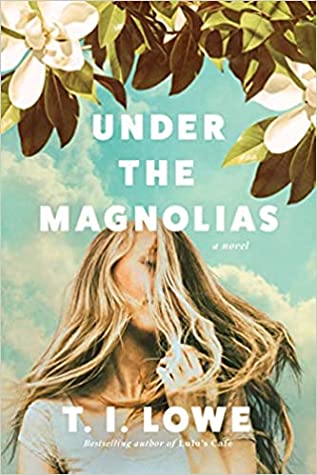This night not only marked the end to the drought, but also the end to the long-held secret we’d kept hidden under the magnolias.
Magnolia, South Carolina, 1980
Austin Foster is barely a teenager when her mama dies giving birth to twins, leaving her to pick up the pieces while holding her six siblings together and doing her best to stop her daddy from retreating into his personal darkness.
Scratching out a living on the family’s tobacco farm is as tough as it gets. When a few random acts of kindness help to ease the Fosters’ hardships, Austin finds herself relying upon some of Magnolia’s most colorful citizens for friendship and more. But it’s next to impossible to hide the truth about the goings-on at Nolia Farms, and Austin’s desperate attempts to save face all but break her.
Just when it seems she might have something more waiting for her―with the son of a wealthy local family who she’s crushed on for years―her father makes a choice that will crack wide-open the family’s secrets and lead to a public reckoning. There are consequences for loving a boy like Vance Cumberland, but there is also freedom in the truth.
T. I. Lowe’s gritty yet tender and uplifting tale reminds us that a great story can break your heart . . . then heal it in the best possible way. This description of the book is taken directly from the author’s website.


Did you always intend that the topic of this book was going to be mental illness?
The topic of mental illness was the very reason I wrote this book. Back in early 2019, I noticed headline after headline about prominent male leaders, in communities and in churches, committing suicide. It broke my heart, making me wonder why they didn’t reach out for help. Through research, I realized mental illness is still lacking in awareness and that strong male figures in society can and will have struggles with mental illness. I hope that through this story readers will be encouraged to talk more openly and to seek help.
Many of your other extra characters in this book would be considered marginalized members of society. What message were you trying to convey by including that element? Do you have a favorite character in this title?
The message is simple, we are all uniquely made. It makes me made when someone is judged harshly simply because they are different. I favored each and everyone of these characters. They all had lessons for us to learn and I’m proud of their stories.
A tobacco farm is an interesting backdrop for Christian fiction. What type of research did you complete to be able to write about this setting?
My very first job was working tobacco at age 12. It was the hardest job I’ve ever had, but I learned to respect a strong work ethic those summers of my youth.
Why did you decide to set this book in the 1980’s?
Sometimes we can understand something better if we put some distance between us and the subject. Doing so with this story, I hope that readers can see the themes of mental illness and marginalized characters more clearly.
Having read many of your books, I know that you often include music as one of the elements. How do you think music can play a part in healing?
Music speaks to me. I love how a song provoke emotions on a wide spectrum. If I’m writing something sad, such as Dave’s dark seasons, listening to “Having You Ever Seen the Rain” just put me in that heavier place with him. I can’t tell you how many times I listened to that one. This was probably my most angsty playlist, but I had songs of hope too. Like the song “Let It Rain” by Crowder and Mandisa. That song was for the celebration of the Foster Family finding their healing. Yes, there was a rain element in most songs for this one. I love how that worked out, reflecting perfectly of the sunshine and storms of Dave.
The person who is struggling with mental illness is a preacher. I think that the Christian world tends to portray the message that if you follow God you should be able to pray your way out of struggles. Do you agree? What other potentially harmful misconceptions are conveyed about mental health?
This was the exact reason why I chose the father/preacher to be the one inflicted with mental illness. Cancer is much like mental illness, in my book, in that it isn’t selective with who is inflicted. During my mother’s battle with lung cancer I prayed that God would heal her, but I also made sure she went to the doctor’s for treatment. Mental illness is no different. God has blessed scientists and doctors with the knowledge of treatment. That in itself is an answer to prayer.
If you had a conversation with someone who like Austin is a caregiver for a person who is struggling with mental illness, what would be your most important bit of advice?
Reach out to those in your inner circle for help. Don’t carry the weight alone.
How do you think we can prioritize mental health in the midst of life’s obligations?
It should be a top priority. If you need a break or extra sleep, you shouldn’t feel less-than for taking it. This hustle mindset and the go-go-go trend needs to stop. During the pandemic, I’ve gotten a better perspective on this. I’ve slowed down and focused on what’s important and that’s meant letting somethings and some people go.
A BIG thank you to T.I. Lowe for answering my question about Under the Magnolias. I also really appreciate her willingness to write about such an important, tough topic. If you want to read this title with your book club, there are discussion materials on her website.
Leave a Reply